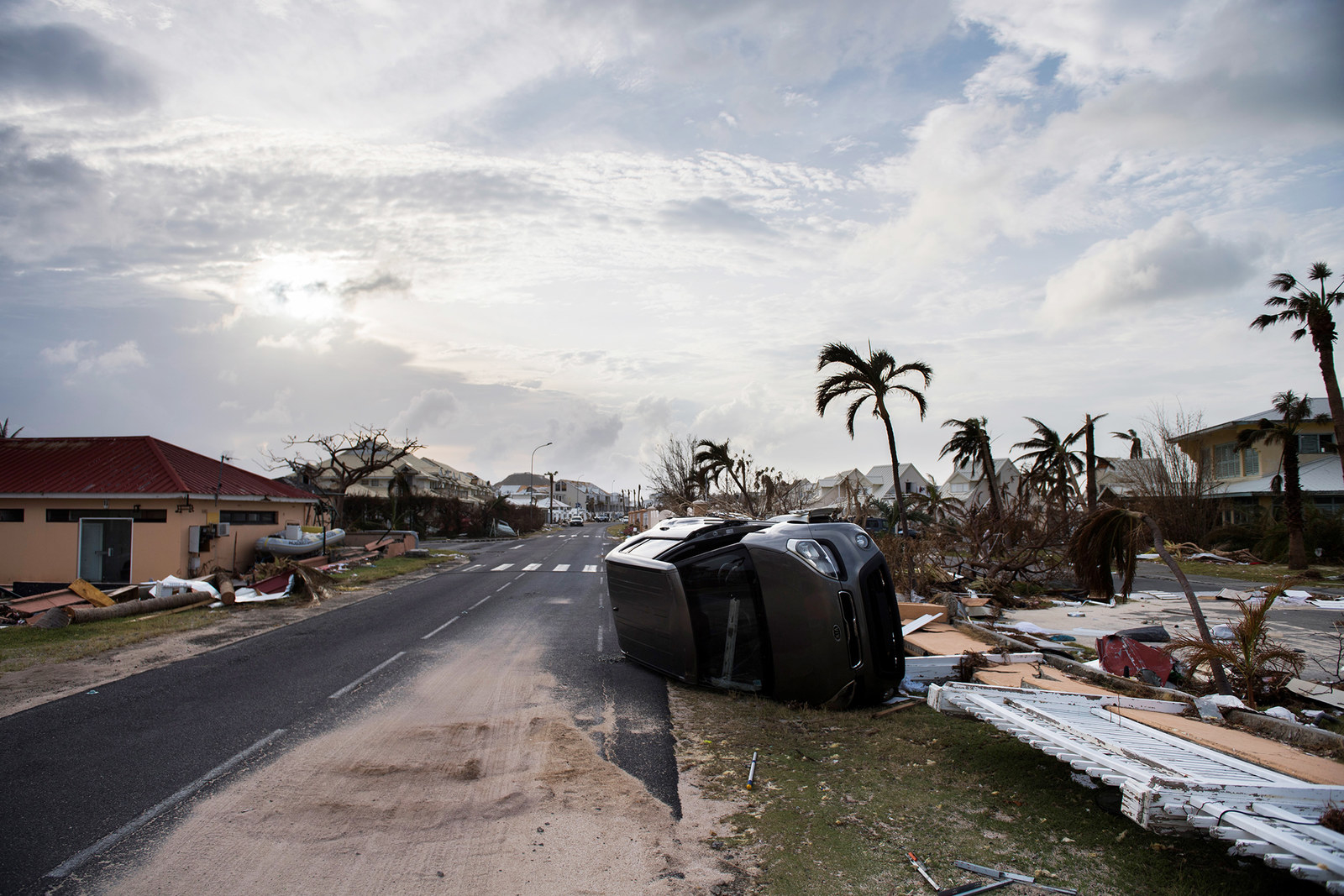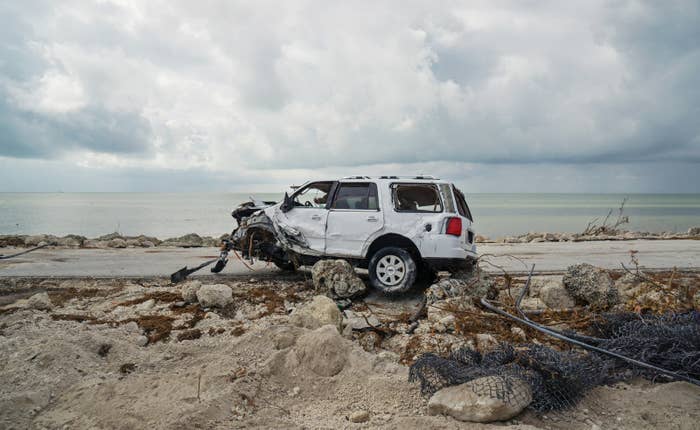
Everything that could have gone wrong has gone wrong since Hurricane Irma slammed into the British Virgin Islands. Wandering around Tortola, the largest of the islands, the scale of the destruction is clear, even after a week of rebuilding.
Thousands of homes here have lost roofs and walls, revealing rooms containing the possessions of the displaced residents. Electricity and water services are patchy, while cables hang loose in the wind. It’s rare to see a building or a vehicle with all its windows intact.
Shipping containers have been left strewn across the road; aircraft were torn in half by the wind and dropped on top of their hangars. Every single tree on the previously green islands has been stripped of its leaves, leaving endless postnuclear forests with their remaining trunks bent at 90 degrees as a memory of the wind’s direction.
But what comes next could be even worse. There's another major hurricane, Maria, predicted to pass close by on Tuesday, and its impact could be dramatically worsened by the damage caused by Irma.
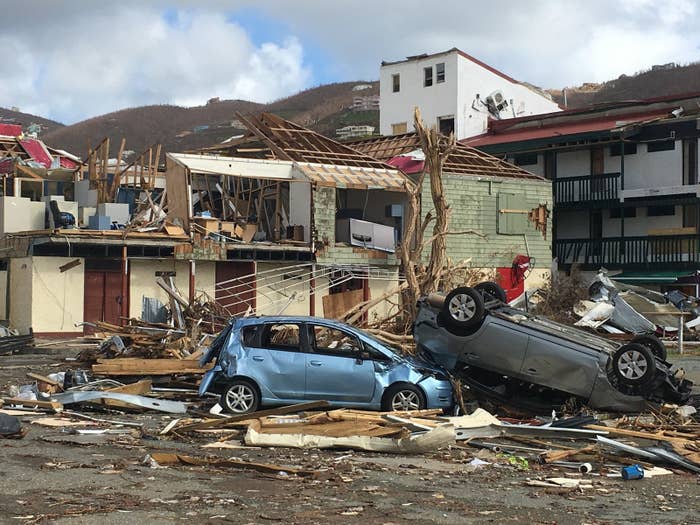
“We’ve been around the world’s shitholes – this is far worse than Afghanistan,” said Paul Maynard, the Royal Marine running the ground force on the islands, citing the enormous logistical challenges of getting supplies into the territory while battling the weather. "The islanders are emotionally and physically exhausted."
He is now preparing for the possibility that another hurricane could hit the area in the next two days, before the initial cleanup is finished, tipping an already damaged island over the edge – not helped by the fact that the British Virgin Islands' own hurricane warning systems were themselves knocked out by Irma.
The British military's worst fear is that there is now so much loose glass, metal, and general debris on the islands that another storm will “pick that up, spin it around, and throw it like ammunition”, said Maynard. If it rains heavily, roads will flood and houses will be drenched; and if high winds hit the island, this could result in deaths as residents are subjected to a lethal barrage of hurricane shrapnel.
The short-term outlook for the economy, based around tourism and the islands’ status as a tax haven, was summarised by one local on the streets of the capital, Road Town, as “fucked”.
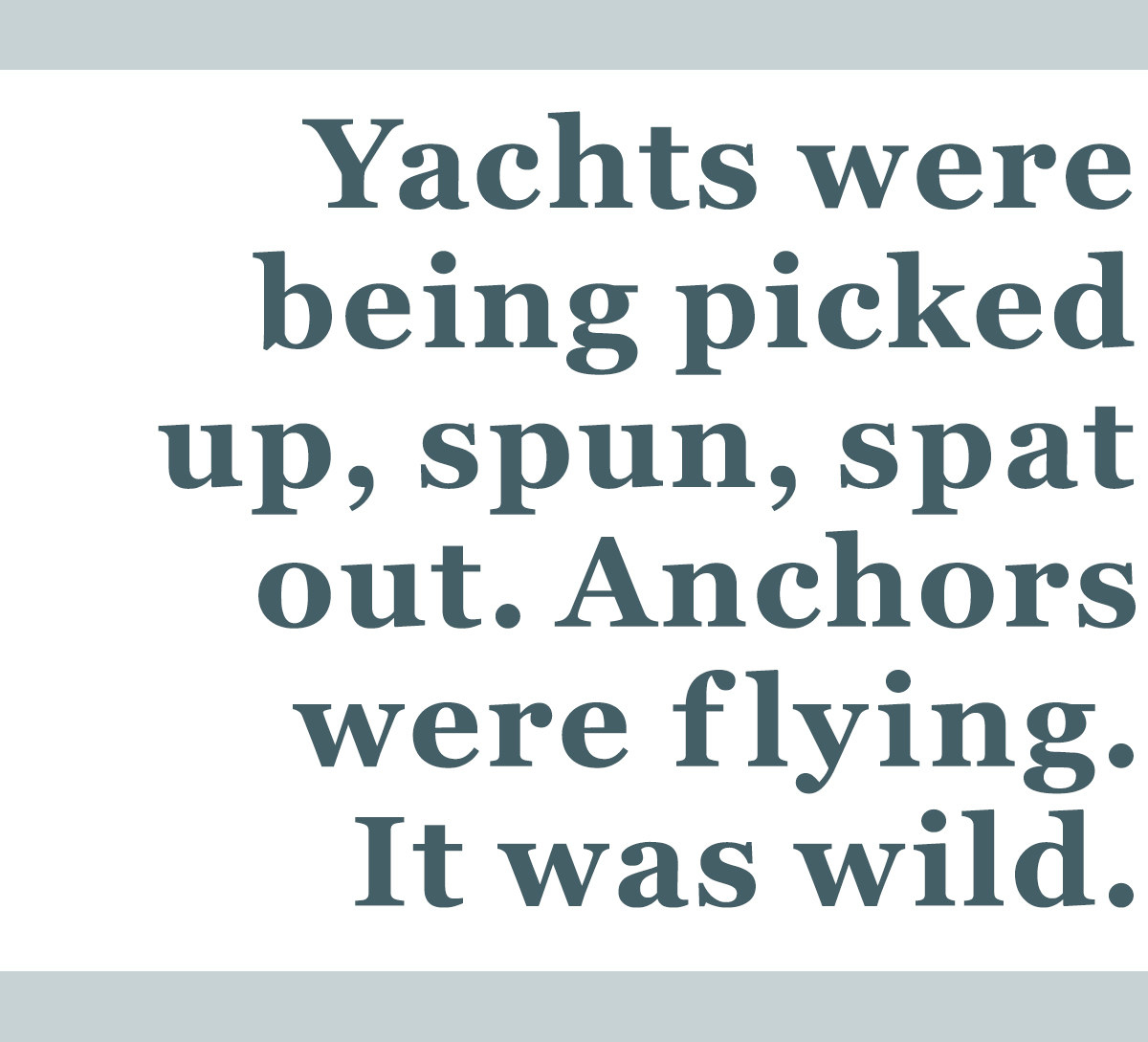
Shawn Eddy was on his 56-foot yacht enjoying the idyllic life of a real estate broker in a Caribbean island paradise when Irma hit the islands and ruined everything. As the winds picked up, Eddy tried to secure the vessel while Irma tore across the local marina.
Friends from a neighbouring yacht came to shelter, but they began to realise there was no safety and were forced to evacuate on to the shore.
Then, while in the eerily quiet eye of the storm, Eddy made a last-minute dash to retrieve a laptop and some other belongings. Minutes later, his boat sank.
“It was like 100,000 hurricanes, it was just white wind,” Eddy told BuzzFeed News. “Yachts were being picked up, spun, spat out. Anchors were flying. It was wild.”
Now he’s sending his children to the Philippines to stay with their grandparents until life is back to something vaguely normal. He reckons it could take six months.
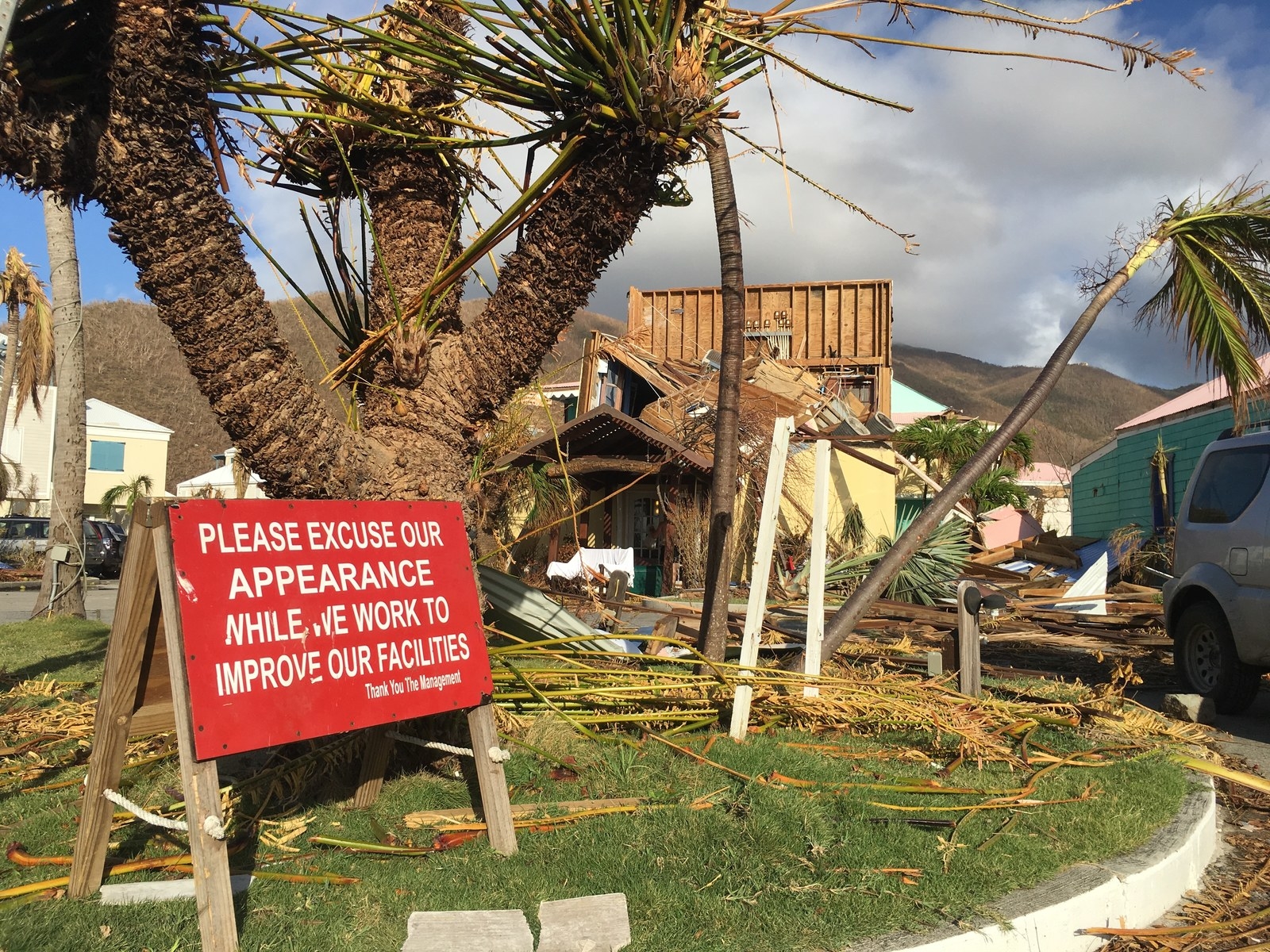
The British Virgin Islands, or BVI, which lie just east of Puerto Rico and are home to around 30,000 people, are a British overseas territory – one of a handful in the Caribbean that never opted for full independence from the UK after the British Empire crumbled. Most of the residents are British citizens and are able to call on the UK government for assistance when required.
Everyone has a story of the destruction. There's the American woman who lost both her Virgin Islands home and her Florida house in the same hurricane. Then there's the British couple who bought their retirement home on the islands last month only to find it completely destroyed. They spent three days trapped inside before being cut out along with a neighbour.
But despite the islands’ status as a notorious tax haven and billionaires' playground – Virgin’s Richard Branson owns a private island here that was almost entirely destroyed by the storm – rampant inequality means many of the residents were poor and living in substandard accommodation even before the hurricane.
It’s these people who have been most affected, and who need the most assistance.
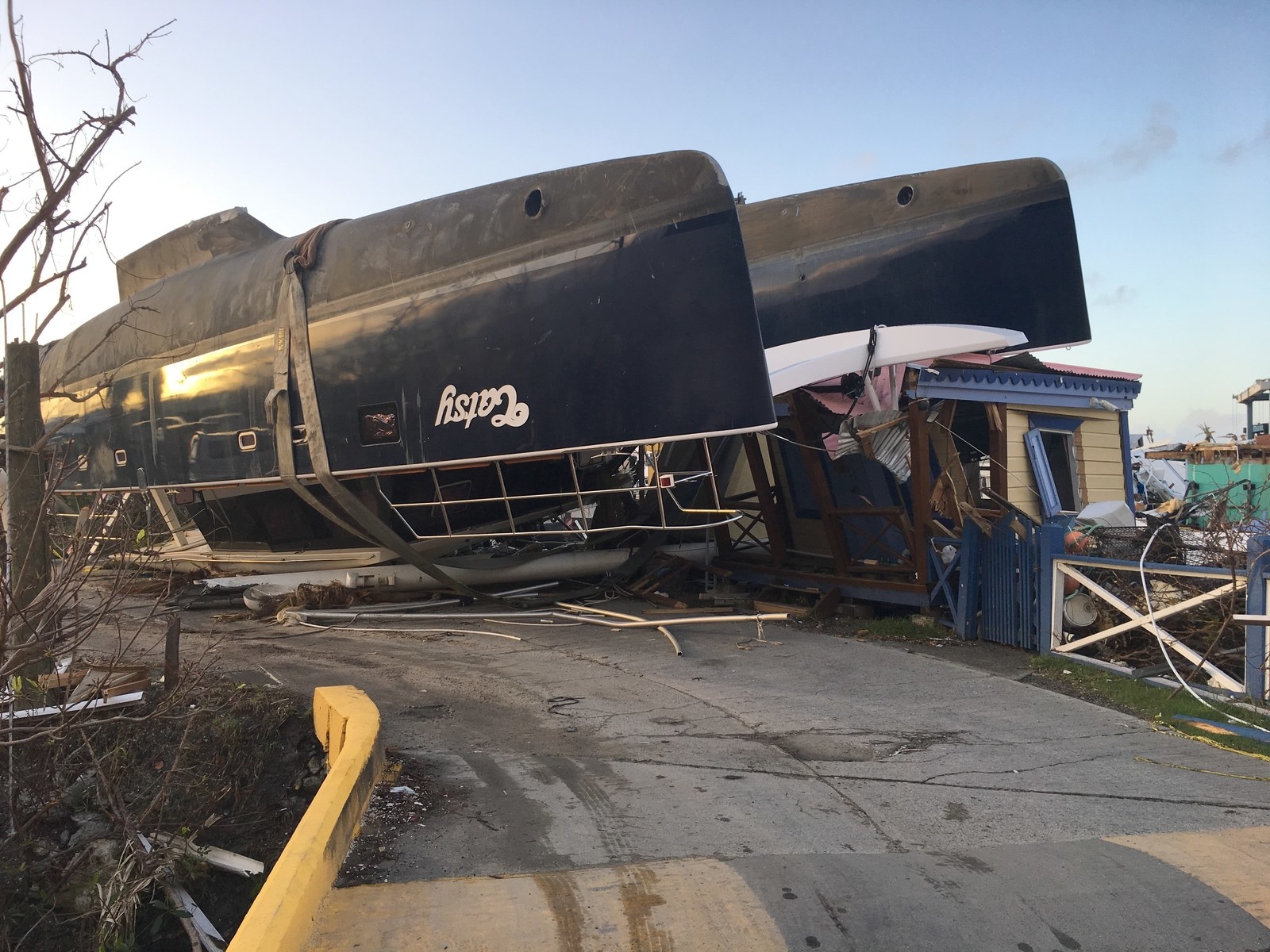
Shaken by criticism that the UK aid operation – a pan-government effort involving the military and the UK’s international aid programme – was too slow, the Ministry of Defence invited a handful of journalists, including BuzzFeed News, to visit the affected islands and see the scale of the challenge for themselves.
Over a thousand troops have been deployed to the region, while constant streams of supplies and aid are being flown on RAF cargo planes out of a makeshift hub at Barbados airport, which handles traffic from the UK. At least 75 tonnes have already been distributed, but almost everything has to be flown in – from wood to metal sheetings and tarpaulin to help make temporary shelters.
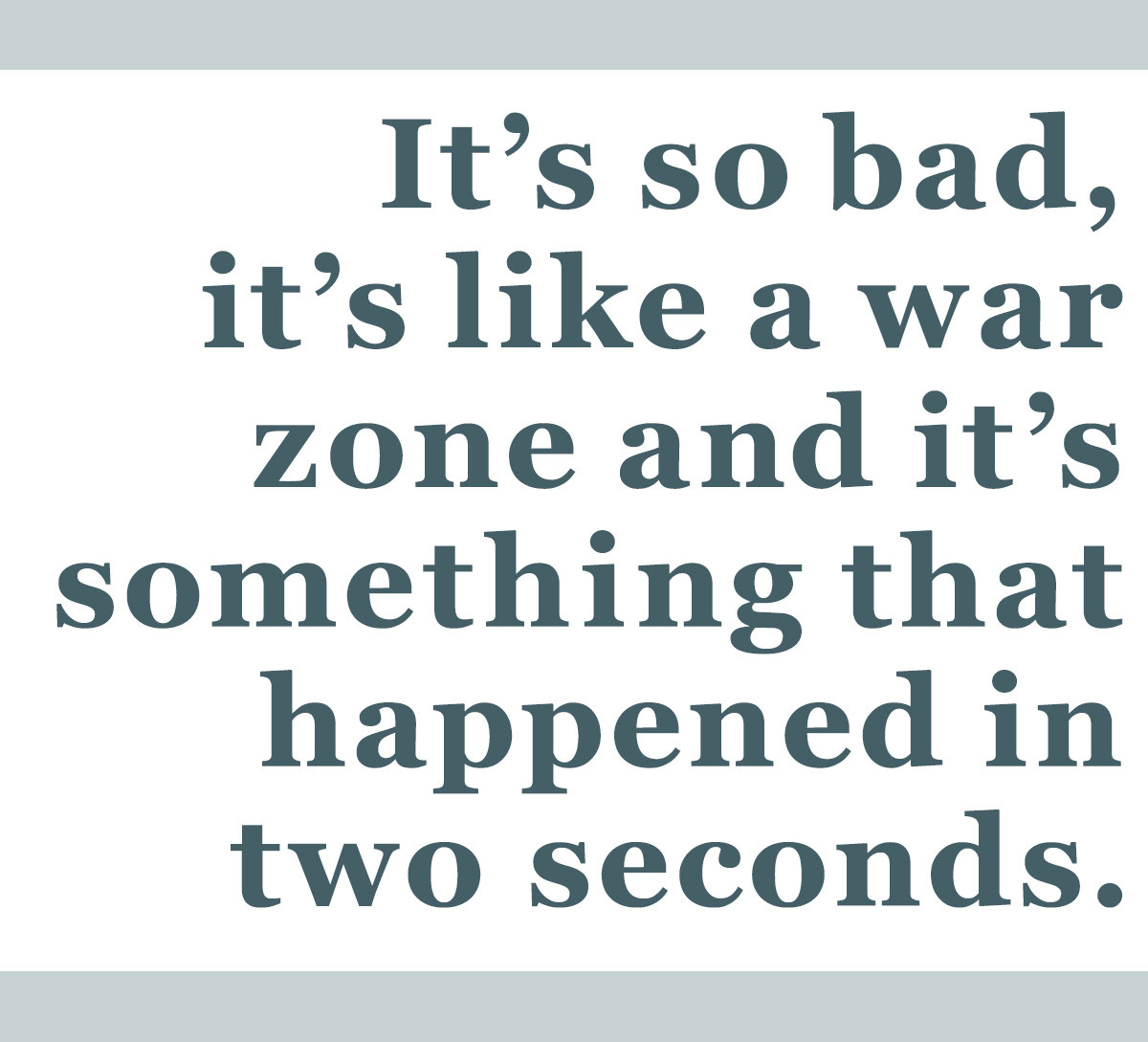
Then there are the supplies needed to support British troops who are 4,000 miles from home, including tens of thousands of bottles of Harrogate Spring Water to keep them hydrated in their temporary bases, which see dozens of men sleeping on the airport's abandoned baggage reclaim conveyor belts.
Initial challenges for the British forces included dealing with the threat of around 140 prisoners, some of them considered extremely dangerous, who escaped their prison when the hurricane blew a hole in the perimeter fence.
Many of the prisoners were still returning to their cells at night for shelter, so the armed Royal Marines simply surrounded the site at dawn and stopped them leaving. On searching the prison they found machetes and drugs, forcing a deep clean of the site.
Marines claim the majority of the most dangerous escapees have been rearrested, but operations continue to find the few who remain on the loose. BuzzFeed News saw Marines passing around passport-sized photos of wanted men they hoped to lock up before the next storm.
"There are still detainees and prisoners at large," said Major Ben Reynolds, who said his Marines had encountered "credible threats" and found a discarded Glock pistol after approaching one car that appeared to pose a danger.
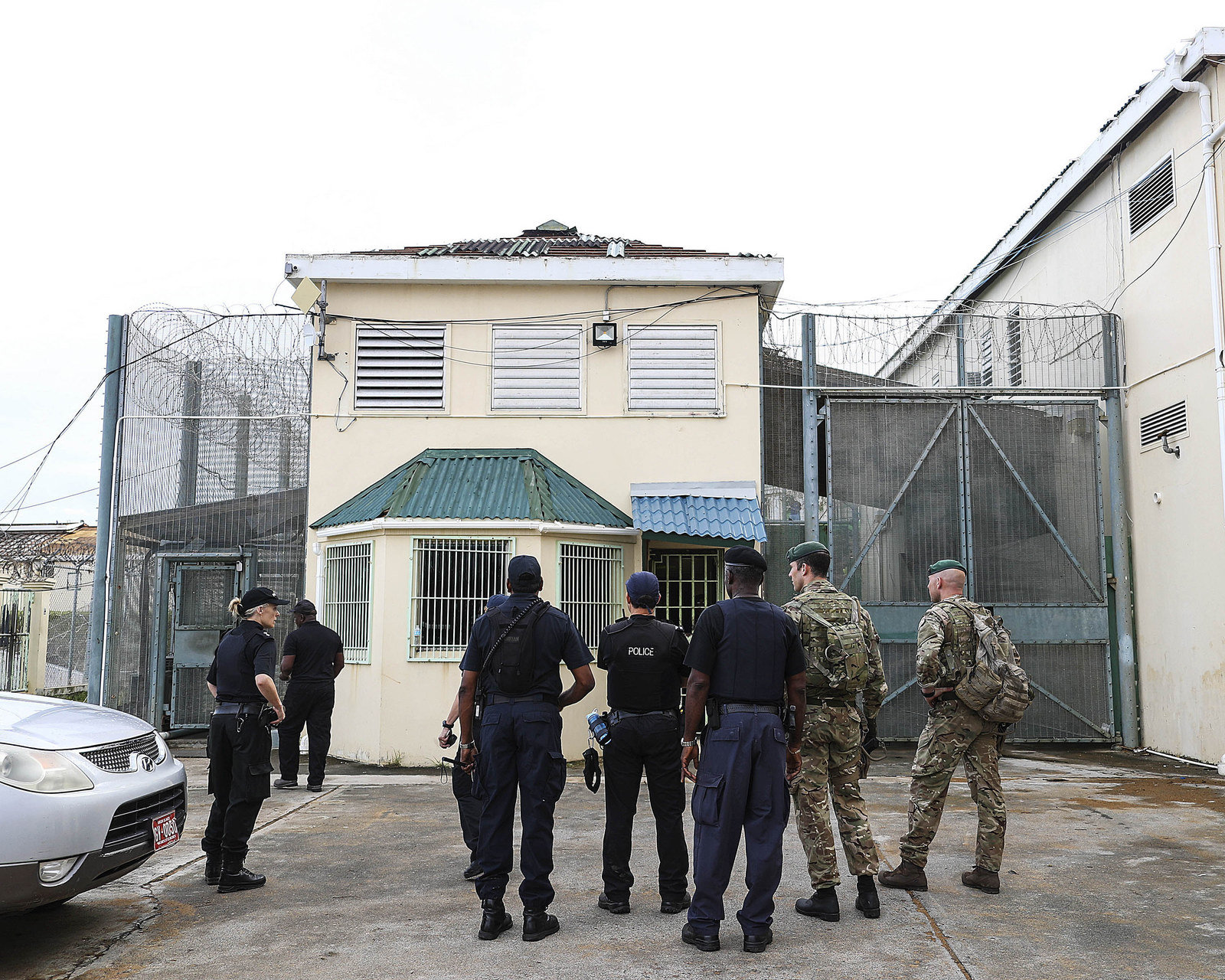
To assist, a 14-strong squad of specialist prison officers, usually tasked with breaking up riots in British prisons, have been flown in from the UK to maintain order. (One person with knowledge of the operation told BuzzFeed News the officers arrived in the Caribbean without their riot shields, potentially leaving them at risk.)
Meanwhile, a curfew was imposed from 6pm onwards and the British military began regular patrols to help an enormously overstretched local police force that was struggling to stop widespread thieving from shops.
“Word got around that there was a shoot-on-sight policy for anyone caught looting,” said one Marine. “So they stopped looting.”
Accessing supplies and running communications remains a challenge. RAF staff were forced to use the only working public Wi-Fi router at the British Virgin Islands' main airport to coordinate flights, while high-level discussions with the government's Cobra emergency committee in London were carried out on the runway in searing heat due to a lack of signal.
Meanwhile, the road to one Royal Marines base is blocked by an upside-down luxury catamaran called Catsy, tossed up in the air and left in the road. Pictures on the boat's glitzy website show it packed with ultra-rich holidaymakers paying $26,000 a week to rent it. The Marines nearby were discussing how best to cut it up in order to clear the road for their vehicles.
The problem for residents of the islands is that the situation could be about to get worse, thanks to Maria. Aid supplies have already been reduced as planes pulled back to an operating base in Barbados while the military waits until it is safe to restart flying.
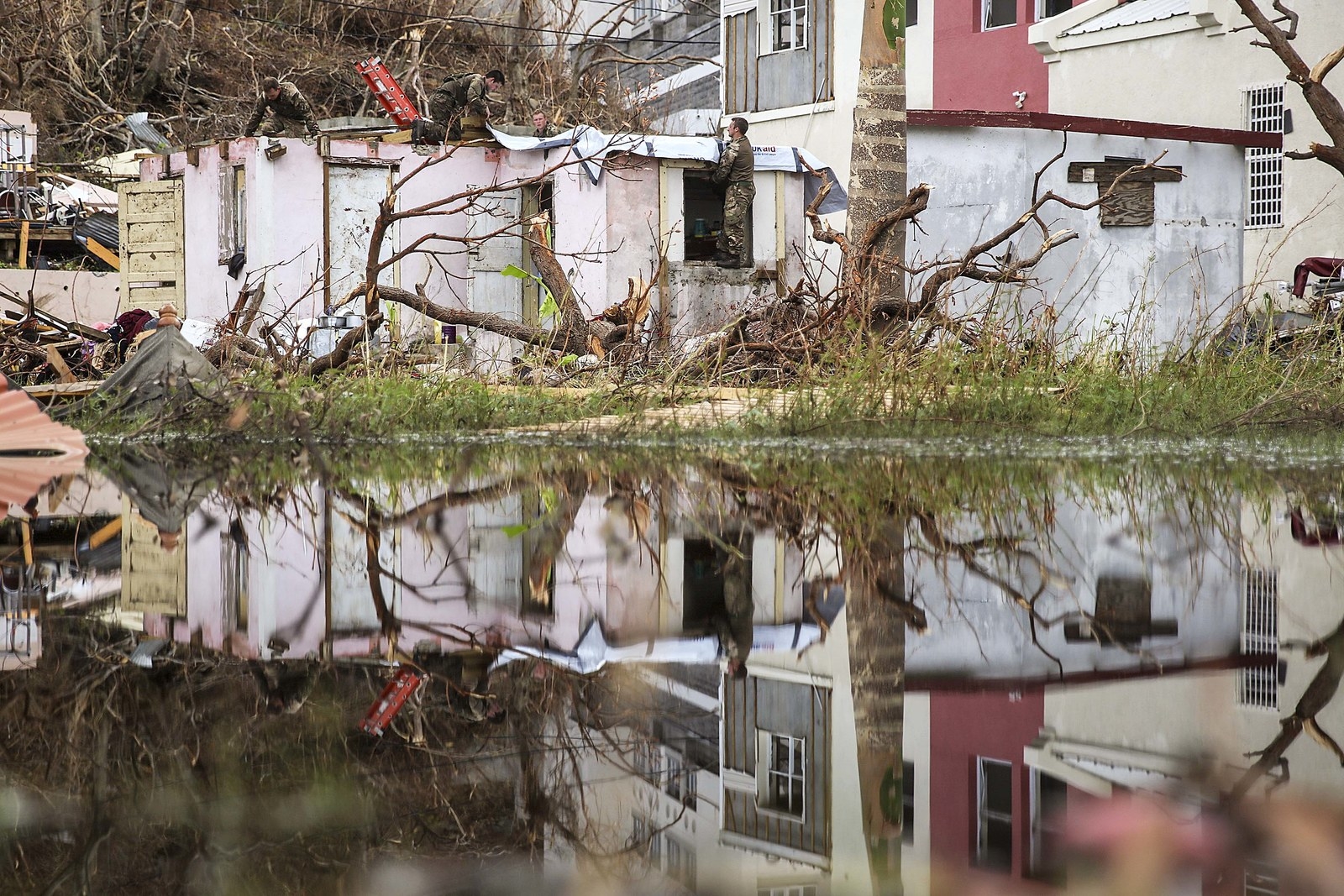
Meanwhile, extra ground forces are being deployed ahead of Maria’s arrival, with some set to be stationed in the prison itself during the storm to ensure there is no repeat of the mass breakout.
"We're putting additional British military personnel in harm's way, but it's a risk worth taking as we know we're going to need to surge immediately to help reconstruction," said Brigadier John Ridge, who is leading the operation from Barbados.
He fears Maria could result in a disaster on the British territory of Montserrat, stretching an operation that already encompasses the British Virgin Islands, Anguilla, and the Turks and Caicos Islands – all spread out across thousands of miles of Caribbean sea.
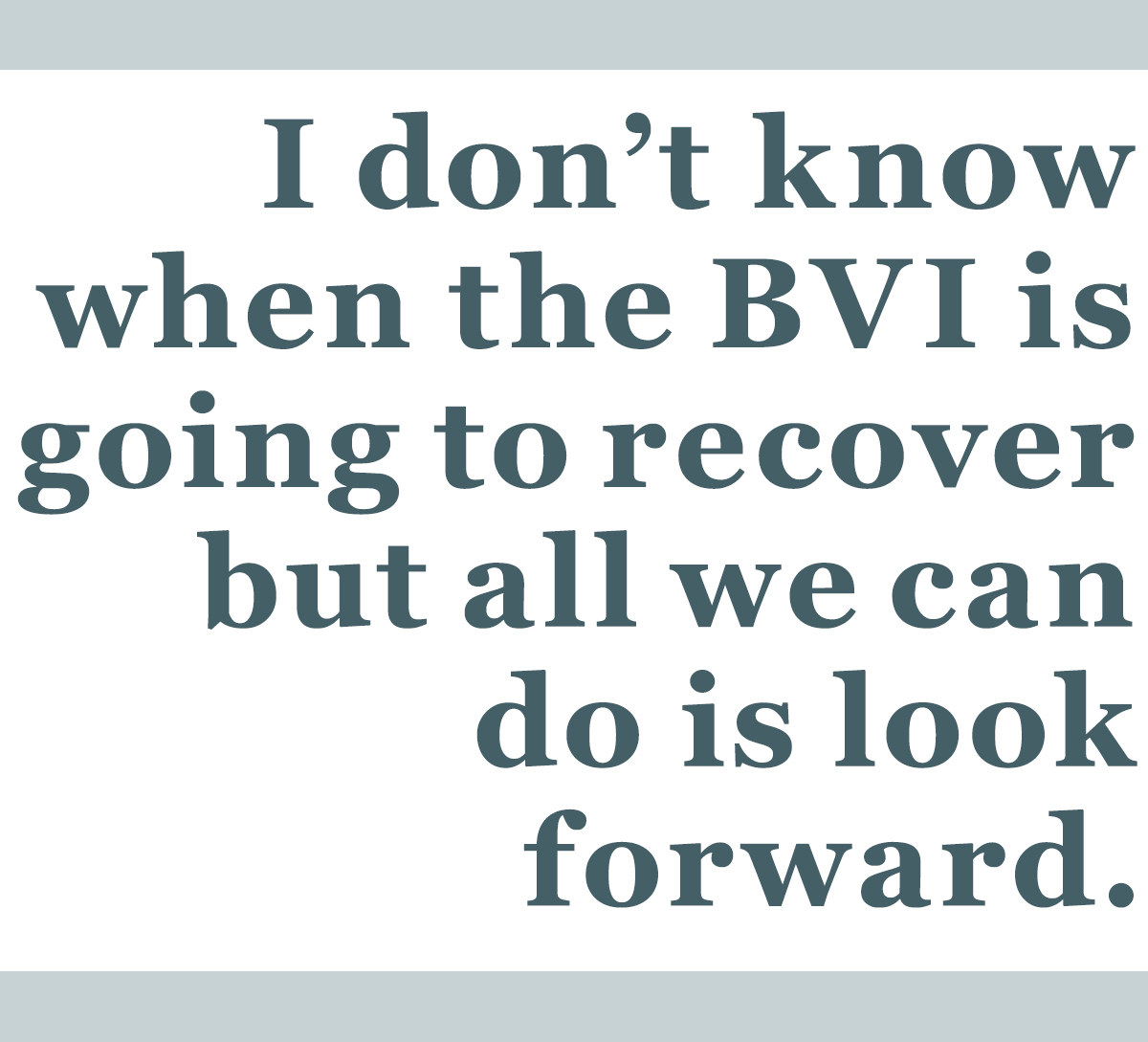
Chris Austin, from the UK's department for international development, said "pretty sharp backwards steps" are probable if Maria hits the islands, with some of the initial reconstruction work after Irma likely to be undone. Calls for further funding seem inevitable and discussions with cabinet ministers are ongoing.
"We won't be able to do everything that the islanders might like us to do," he warned.
Rebuilding will take years. Foreign secretary Boris Johnson has already pledged £57 million in assistance towards all British territories in the region, although this is a tiny fraction of the rebuilding cost even when insurance is taken into account. The enormous paper wealth of the islands – buoyed by income produced by tax haven accountancy practises – means it’s illegal for the UK to help them directly out of the aid budget. But the local government has nothing like the required cash to rebuild, especially if Maria causes even more damage.
At the moment, life on the British Virgin Islands remains stuck in limbo.
"I've heard forecasts of hurricanes but they never came to pass," said security guard Maurice Ikwueme, surveying downtown Road Town, where few buildings have all their walls intact. "It's so bad it's like a war zone and it's something that happened in two seconds. I don't know when the BVI is going to recover, but all we can do is look forward."
